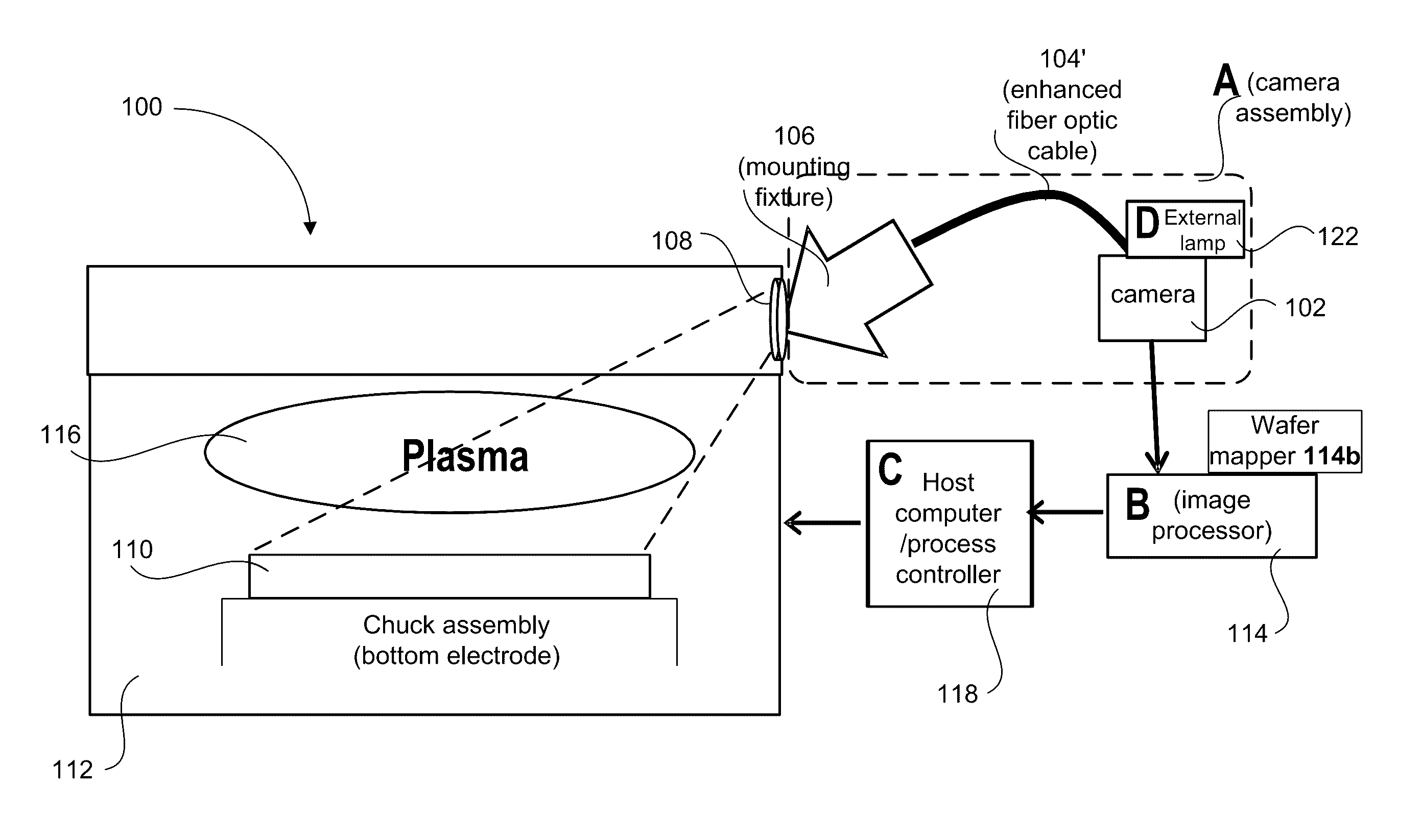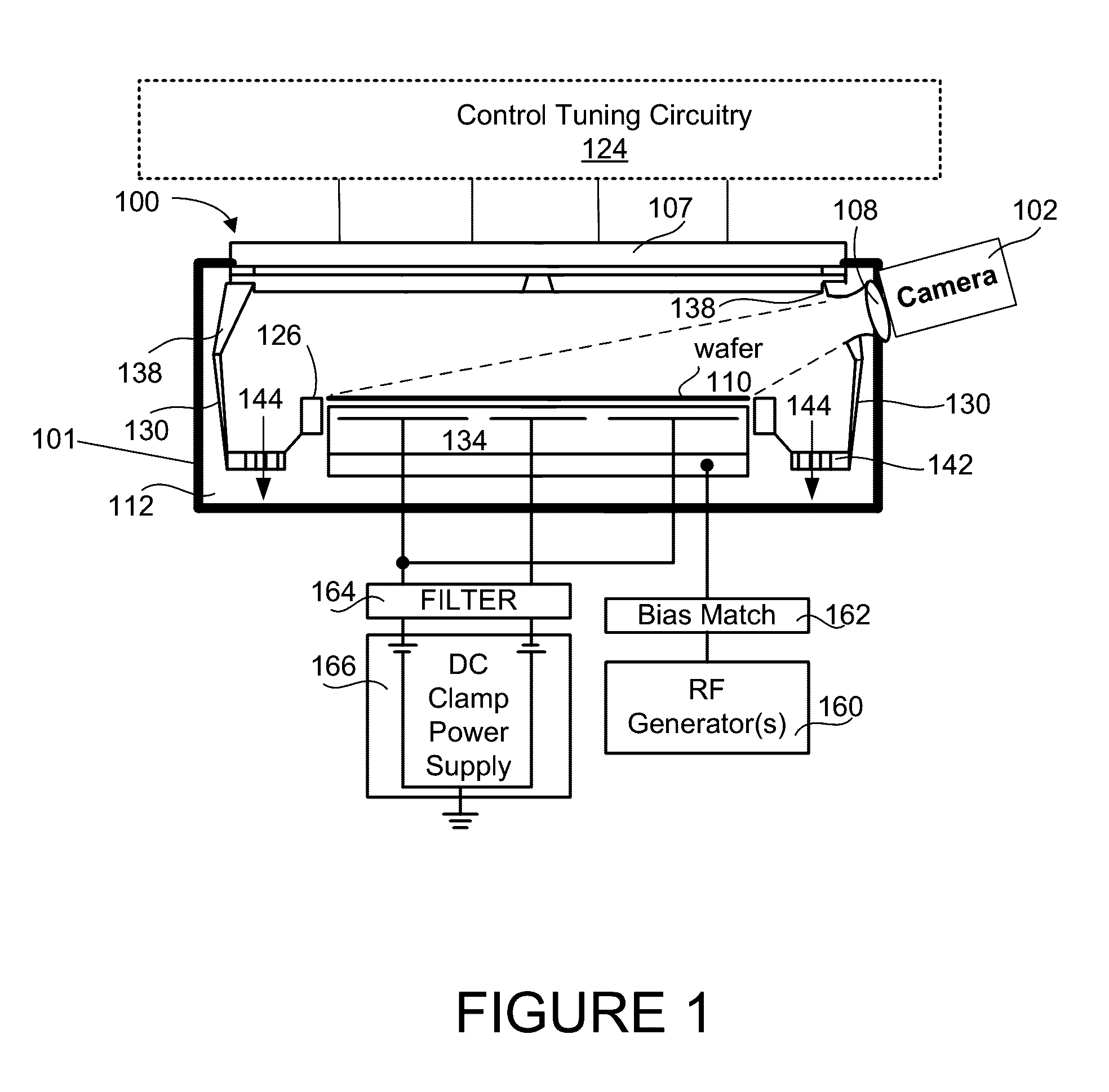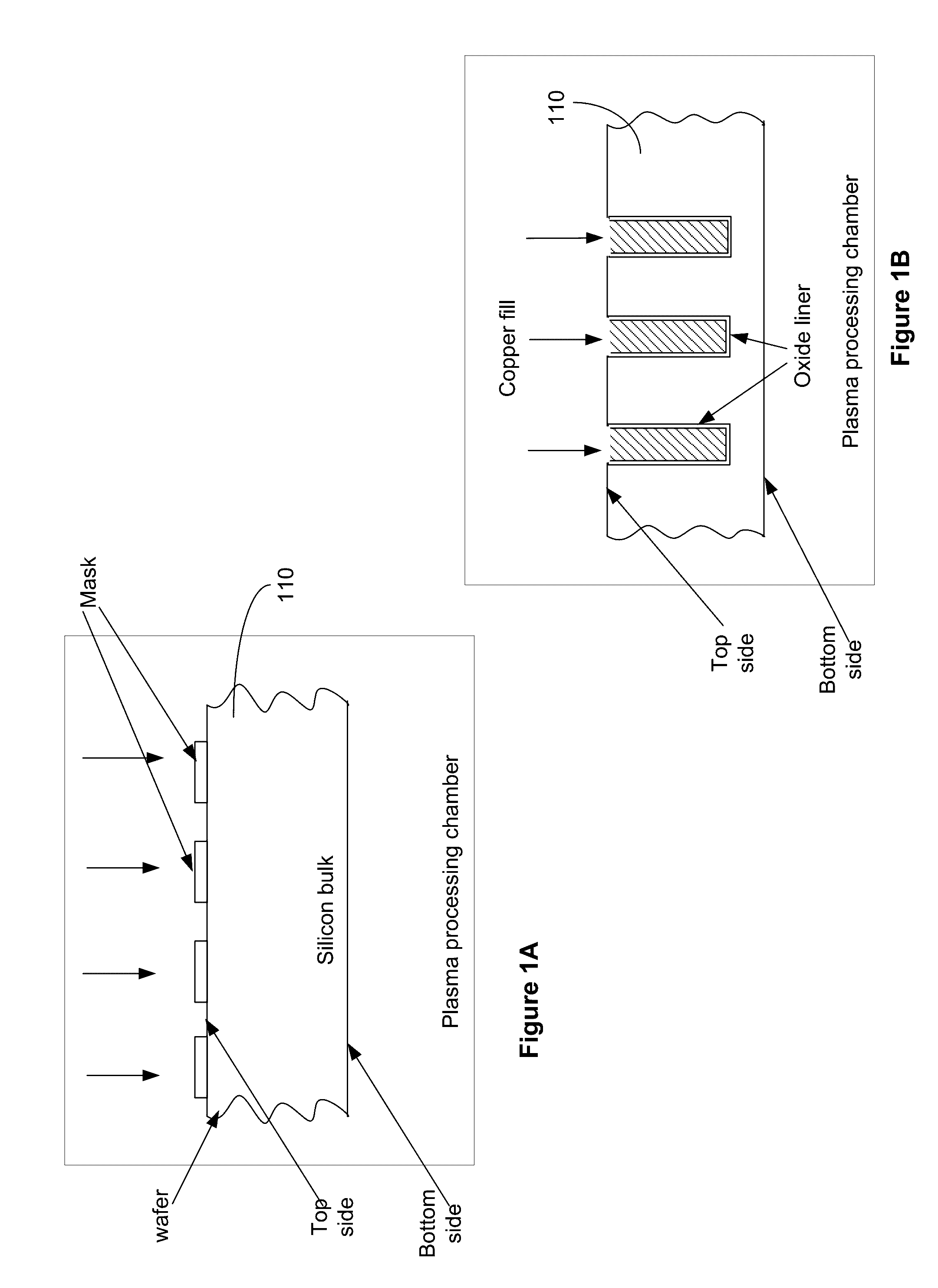Systems and methods for detecting endpoint for through-silicon via reveal applications
a technology of reveal application and through-silicon, which is applied in the field of optical imaging, can solve the problems of tsv nodes protruding too much from the silicon, becoming increasingly difficult to precisely detect the change in emission, and enhancing the pattern matching effect, so as to achieve the effect of precise detection and matching, enhancing the pattern matching, and improving the accuracy of matching
- Summary
- Abstract
- Description
- Claims
- Application Information
AI Technical Summary
Benefits of technology
Problems solved by technology
Method used
Image
Examples
Embodiment Construction
[0028]An invention for determining process end point in plasma etch operations is described. In preferred embodiments, systems for the detection and analysis of images of emerging pattern include providing a camera at a viewport of a plasma processing chamber, capturing a sequence of images of an active surface of a wafer during an etching operation through the viewport using the camera, comparing the emerging pattern of the captured images with a reference pattern and determining when to generate an endpoint call for the etching operation. In the following description, numerous specific details are set forth in order to provide a thorough understanding of the present invention. It will be understood, however, to one skilled in the art, that the present invention may be practiced without some or all of these specific details. In other instances, well known process operations have not been described in detail in order not to unnecessarily obscure the present invention.
[0029]As an ove...
PUM
 Login to View More
Login to View More Abstract
Description
Claims
Application Information
 Login to View More
Login to View More - R&D
- Intellectual Property
- Life Sciences
- Materials
- Tech Scout
- Unparalleled Data Quality
- Higher Quality Content
- 60% Fewer Hallucinations
Browse by: Latest US Patents, China's latest patents, Technical Efficacy Thesaurus, Application Domain, Technology Topic, Popular Technical Reports.
© 2025 PatSnap. All rights reserved.Legal|Privacy policy|Modern Slavery Act Transparency Statement|Sitemap|About US| Contact US: help@patsnap.com



